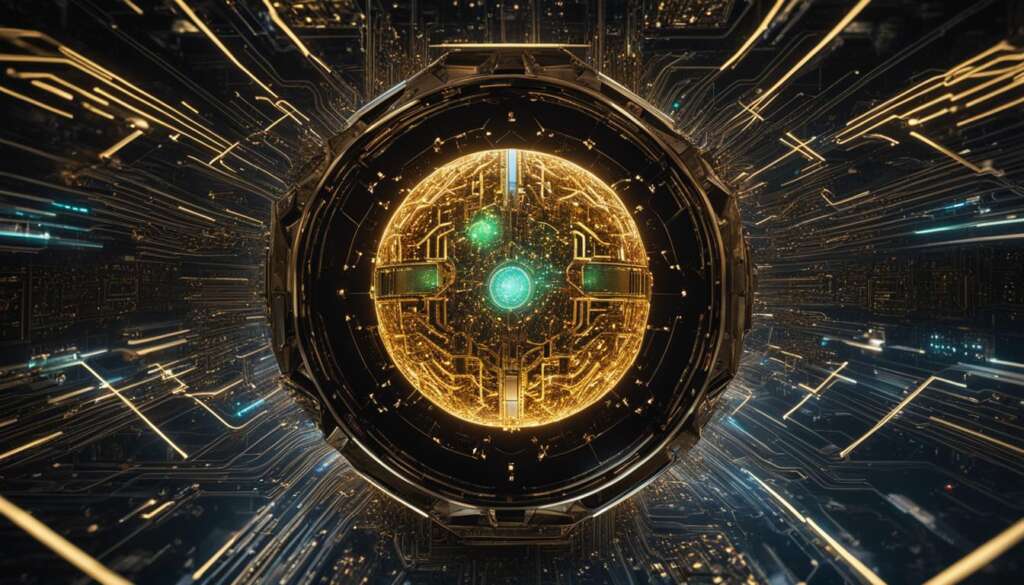Table of Contents
The ascent of computer programs in playing chess has been a significant development in the world of gaming. The victory of the AlphaGo computer program over the top-ranked go player Lee Sedol has highlighted the potential of machine intelligence in board games. The success of machines in playing chess and go is driven by the use of specialized hardware and software that can evaluate millions of board positions per second. However, the complexity of go, with its larger board and higher branching factor, poses a greater challenge for computers compared to chess. Chess, on the other hand, is a game of strategy where players have full access to all relevant information, making it easier to evaluate positions and make strategic decisions. The development of neural networks and machine-learning techniques has greatly improved the performance of chess programs, enabling them to compete at the world-class level.
When it comes to human vs computer chess, the strengths and weaknesses of each player become evident. While humans possess intuition and creativity, computers excel in calculation and analysis. The chess computer program, powered by a computer chess engine, utilizes its computational power to search through a vast number of possible moves, evaluating each one to determine the best course of action. This ability to analyze multiple moves ahead gives computers an edge over human players.
The Rise of AlphaGo in the World of Go
The world of go has been revolutionized by the emergence of AlphaGo, a groundbreaking computer program developed by DeepMind Technologies and acquired by Google. AlphaGo’s unprecedented success in defeating top professional players, including the European champion, without any handicaps, has astounded the gaming community. The program’s achievements can be attributed to its innovative use of neural networks and machine-learning techniques.
AlphaGo combines a value network, which assesses the likelihood of winning based on a given board position, and a policy network, which selects the best moves for a given situation. These networks, trained using extensive datasets, enable AlphaGo to recognize patterns and make strategic decisions based on limited information. Furthermore, the program utilizes a Monte Carlo tree search, a probabilistic method that samples promising moves and evaluates their potential outcomes.
AlphaGo’s ability to learn and improve with every game is truly remarkable. The program’s deep neural networks allow it to analyze and evaluate countless possibilities, leading to increasingly sophisticated gameplay strategies. This adaptive learning process has propelled AlphaGo to the forefront of the go-playing world, challenging the notion that humans are the ultimate masters of the game.
The Triumph in the Ancient Game
AlphaGo’s triumph over top players in the ancient game of go has not only showcased the potential of AI in the world of gaming but has also sparked new waves of excitement and interest in the game itself. The program’s success has spurred researchers, players, and enthusiasts to delve deeper into the complexities of go and explore new strategies and techniques.
As AlphaGo continues to dominate the world of go, its impact extends beyond the game board. The groundbreaking techniques and algorithms employed by AlphaGo have the potential to revolutionize other industries and fields, such as medicine, finance, and scientific research. The world eagerly awaits future advancements in AI technology and the continued exploration of its potential.
| AlphaGo’s Advantages | Human Players’ Advantages |
|---|---|
|
|
The rise of AlphaGo has clearly demonstrated the tremendous potential of AI in the world of gaming. As algorithms and technologies continue to evolve, we can expect further advancements in chess AI, chess algorithms, and computer chess tournaments. The melding of human intuition and creativity with the analytical powers of AI has the potential to unlock new levels of gameplay and excitement in the world of chess.
The Evolution of Chess Computer Programs
Chess computer programs have come a long way since their inception. One of the major milestones in the history of computer chess was the match between IBM’s Deep Blue and the world chess champion Garry Kasparov in 1997. Deep Blue was capable of evaluating an impressive 200 million board positions per second, showcasing the power of computer analysis. This match demonstrated that computers had reached a level where they could challenge and defeat the best human players.
Since then, chess computer programs have continued to evolve, utilizing advanced techniques such as neural networks and machine learning. These programs are now able to analyze positions, evaluate moves, and suggest the best possible moves based on the given position. Additionally, they provide post-game analysis, allowing players to review their games and identify any mistakes or missed opportunities. This level of analysis and feedback has made it easier for players to study and improve their gameplay.
Chess computer programs also assist professional players in analyzing their opponents’ games and preparing strategies for upcoming matches. The availability of powerful computer analysis has revolutionized the way chess is played and studied. Players can now rely on these programs to provide valuable insights and help them stay ahead of their competition.

Table: Comparison of Popular Chess Computer Programs
| Chess Program | Key Features | Availability |
|---|---|---|
| Arena | – Advanced analysis features – Wide range of playing levels – Support for various chess engines |
Free to download and use |
| Fritz | – Strong playing strength – Extensive opening book – Training and analysis tools |
Commercial software |
| Stockfish | – Open-source engine – High playing strength – Command-line interface for advanced users |
Free and open-source |
The evolution of chess computer programs has made them valuable tools for players of all levels. Whether it’s analyzing games, practicing against virtual opponents, or participating in online chess communities, these programs provide a platform for players to improve their skills. As technology continues to advance, we can expect further enhancements in computer analysis and software, leading to even more sophisticated and formidable opponents in the game of chess.
Playing Chess Against Computers
Playing chess against computers offers numerous advantages for both beginners and experienced players. One of the key benefits is the ability to choose your preferred difficulty level, allowing you to challenge yourself and gradually improve your skills. Whether you’re a novice looking to learn the basics or an advanced player seeking a formidable opponent, chess computer programs cater to all skill levels and provide a platform for practice and growth.
Computers have the unique capability to analyze games and provide valuable feedback. By playing against a chess computer program, you can receive instant analysis of your moves, identify weaknesses in your gameplay, and learn from your mistakes. This real-time evaluation allows you to develop stronger strategic thinking and make more informed decisions. Additionally, chess programs often offer post-game analysis, highlighting missed opportunities and suggesting alternative moves to further enhance your understanding of the game.
Chess computer programs not only benefit individual players but also assist professional players in their preparation and strategy development. These software tools allow professionals to analyze their opponents’ games, identify patterns, and devise effective counter-strategies. By studying the moves and tactics of top players, chess computer programs empower professionals to refine their skills and stay ahead of the competition.
| Advantages of Playing Chess Against Computers | Disadvantages of Playing Chess Against Computers |
|---|---|
|
|
Playing chess against computers offers a unique and tailored learning experience. The ability to adjust difficulty levels, receive instant analysis and feedback, and engage in post-game analysis provides players with a comprehensive and immersive chess training environment. Whether you’re a beginner looking to learn the fundamentals or a professional seeking to refine your strategy, chess computer programs offer a valuable resource for chess enthusiasts of all levels.
Conclusion
The rise of computer programs in playing chess and go has transformed the world of board games. The success of programs like AlphaGo and Deep Blue showcases the power of neural networks, machine learning, and probabilistic algorithms in mastering complex games.
Chess computer programs have become valuable tools for players of all levels, providing analysis, guidance, and an opportunity for practice and improvement. With advanced features such as computer chess engines, players can now face off against the best chess computers, challenging themselves to improve their gameplay and strategies.
As technology continues to evolve, we can expect further advancements in chess AI and computer algorithms, leading to more sophisticated and formidable opponents in the game of chess. Whether it’s analyzing the game, finding the best moves, or participating in online chess communities, computer chess software offers a wealth of resources for players to enhance their skills and enjoy the game.
FAQ
How do computer programs play chess?
Computer programs play chess by utilizing specialized hardware and software that can evaluate millions of board positions per second. They use neural networks and machine-learning techniques to analyze positions, evaluate moves, and suggest the best possible moves based on the given position.
What is the difference between chess and go in terms of computer programming?
Chess and go are both complex board games, but go poses a greater challenge for computers compared to chess. The larger board and higher branching factor of go make it more difficult for computers to analyze all the possible moves. Chess, on the other hand, is a game of strategy where players have full access to all relevant information, making it easier for computers to evaluate positions and make strategic decisions.
What is the significance of AlphaGo in the world of go?
AlphaGo, developed by DeepMind Technologies and acquired by Google, has revolutionized the world of go by defeating top professional players without handicapping. Its success can be attributed to its use of neural networks and machine-learning techniques, which allow it to recognize patterns and make strategic decisions based on limited information.
How have chess computer programs evolved over the years?
Chess computer programs have become more advanced over the years, starting with IBM’s Deep Blue, which played chess by evaluating 200 million board positions per second. Since then, programs have utilized neural networks and machine-learning techniques to improve their performance. These programs can analyze positions, evaluate moves, and suggest the best possible moves based on the given position.
What advantages do computers offer in playing chess?
Playing chess against computers offers several advantages. Players can choose their preferred difficulty level and practice against virtual opponents. Computers are capable of analyzing games and identifying weaknesses and mistakes, providing valuable feedback for players to learn from. Additionally, chess computer programs assist professional players in analyzing their opponents’ games and preparing strategies for upcoming matches.













